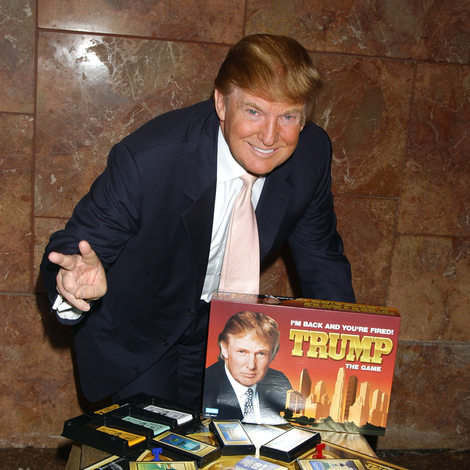Given what we know about Emmanuel Macron’s nutritional habits, we can’t blame his June 9 call for a snap legislative election on a breakfast of Four Loko and MDMA.
But the timing, an hour after his party had taken a beating in the European parliamentary elections, suggests both overstimulation and hallucination. Macron left just seven days for the entire French political landscape to recompose itself and propose candidates, and three weeks to unfurl the full campaign. (France holds elections in two rounds: the first, wider contest is held on June 30, and the runoff on July 7.)
In a puff of some kind of smoke, the imperious Macron may end his political career—maybe even by stepping down, if whispers are to be believed—in disgrace, flipping tables like a Real Housewife who’s not here to make friends. “It’s the first time that I saw such a clean break [in Macron’s camp],” said journalist Nils Wilcke on the streaming channel Le Média. In speaking with party executives and elected officials, he said, “You get the impression of a profound internal disillusionment.”
The latest Ifop-Fiducal poll shows Marine Le Pen’s far-right National Rally with 34 percent of likely voters; the slapdash leftish bloc, the New Popular Front, with 29 percent; and Macron’s centrist camp with 22 percent. If the far right doesn’t win an absolute majority—and, therefore, the mandate to name the prime minister and the Cabinet—they will still have more institutional weight than at any time since the Vichy government during the Second World War. Édouard Philippe, Macron’s first prime minister, told the news channel TF1 point-blank, “It’s the president of the republic who killed his majority.”
The French can’t help but wonder: Has Macron gone mad? Cohabitation with a hostile opposition party can block much of his agenda at the E.U. level, too. Why is he giving up his hard-won standing there to leave Ukraine in the dust after being its most vocal champion? And to the probable mercy of a party that just paid back an $11 million loan, which was necessary to keep the lights on back in 2014, from one of Vladimir Putin’s banks?
Even the most logical scenario points to a wild, myopic gamble—that he’s accelerating the far right’s ascension to power now, so they can self-destruct before Marine Le Pen, currently serving as a member of the European Parliament, can run for president in 2027. (If her National Rally gets a majority in July, they are entitled to name a new prime minister and Cabinet, meaning they can block Macron on just about everything.) Or maybe it’s simply that since he won his second election, two years ago, Macron has had to share too much power and he’s over it. He’s never been the most collaborative leader. Could it really be as simple as a diva fit?
Just before the European elections, Macron was insinuating that the contest wasn’t of national consequence. And yet he had already gathered a tiny group of advisers to study the possibility of dissolving congress and forcing the country back into a national election. Notably, that early circle did not include his newly appointed prime minister, Gabriel Attal.
Pascal Praud, the French equivalent of Sean Hannity, was tipped off about the snap election before Attal, Macron’s most loyal deputy. He only heard the news an hour before the rest of the country. The scowl on the P.M.’s usually cherubic face, committed to history by Elysée photographer Soazig de la Moissonnière, said it all. Attal is still leading the effort to elect whatever deputies he can under Macron’s banner—despite being rather brutally cut out of the inner circle, he’s playing the loyal soldier. But no matter how the election unfolds, the party’s numbers will be much smaller than the relative majority they’ve held until now.
He’s never been the most collaborative leader. Could it really be as simple as a diva fit?
Having never been elected to any office before, with no institutional baggage, Macron came into power in 2017, describing himself as “Jupiterian”—Zeus-like and kingly—and above the messy left-right divide. Ironically, his sudden move has called in so much chaos that, in just a few days, he revived the old factions, who came charging back to restore order. François Hollande, the president who hired Macron as minister of the economy, is now standing for a seat in congress because, he said, “the situation is serious.” This from a fellow who left office with a 4 percent approval rating, and yet he’s likely to win.
Several days after his announcement, Macron told the country in a press conference that he intended to force squabbling extremes to put up or shut up. Perhaps, as a self-isolating head of state whom few dare to contradict, he saw his actions as gutsy and visionary. Then again, he expected at least a 20 percent vote in the European elections and got 14.7 percent, so it’s hard to argue in favor of his instincts. Meanwhile, the French stock markets dropped 6.2 percent in a week.
It wasn’t supposed to happen this soon. Macron’s only real electoral deadline is in September, when the next budget comes up for a vote. If you thought things got hot when pension reform came up last year and the country practically shut down, the required future budget cuts—a 1 percent reduction of the deficit each year until 2027—will be brutal, regardless of who runs the show.
Wouldn’t Macron rather be soaking up Olympic glory than batting back quixotic populist schemes to explode the national purse? If he had waited until September, forward Kylian Mbappé, who is about to join Real Madrid when he’s not playing for France’s national soccer team, wouldn’t have to worry about wearing the jersey of a country co-governed by barely domesticated degenerates. Let’s not be shy: the same night as Macron’s announcement, Gabriel Loustau, head of the Groupe Union Défense, a student militia with long-standing ties to the Le Pens, went out trans-bashing in Paris with some comrades. Libération reported that after he and his friends were arrested, under questioning by police, one of them proclaimed, “For real, in three weeks, we can bust up any fag we want.”
Macron’s biggest mistake was counting out the left flank. The different parties are doing their best to get along with each other, though currently at issue is how they decide whom to nominate for prime minister if they get the shot. They’ve ruled out Jean-Luc Mélenchon—a Euroskeptic and open admirer of Fidel Castro with outrageous delusions of grandeur—but he also just kicked out some of their most affable and relatable members of his party, France Unbowed, in a purge. And now his group is getting a little too muscular with the others. Breathe deeply.
On the other side of the spectrum, it’s even goofier.
The once center-right Republicans party—the organ of Nicolas Sarkozy and Jacques Chirac—imploded spectacularly after its leader, Éric Ciotti, made a pact to support Le Pen’s National Rally without consulting anyone. He was ousted for his troubles and now brings only 60 or so dissidents to caucus with Le Pen.
If her group takes enough seats, the party’s president, the 28-year-old TikTok hunk Jordan Bardella, will become the next prime minister. Marine Le Pen’s second-in-command has only served in elected office at the European level, where he has not been known for high attendance. But the college dropout from the rough northern suburbs of Paris is steamy and dreamy on social media. He also happens to be dating Le Pen’s niece. His fortunes rose when Le Pen’s other niece, Marion Maréchal-Le Pen, defected from the National Rally to join Reconquête, another openly racist political party. But since Macron’s announcement, she left its boss, Éric Zemmour, in the dust on live TV and returned back to the clan.
“We’re a sick body,” Macron has said behind the scenes. He’s referring to his government, but he might as well be referring to the country at large. Earlier this week, Le Parisien published a roundup of French shrinks who reported heightened levels of anxiety and depression nationwide since the 9th. This immigrant can relate.
“I don’t want to die bit by bit,” he has said. O.K., so how about all at once?
Alexandra Marshall is a Writer at Large at AIR MAIL and a contributor to W, The Wall Street Journal, Vogue, and Travel + Leisure. She chronicles her recent relocation to Le Perche in the newsletter An American Who Fled Paris


